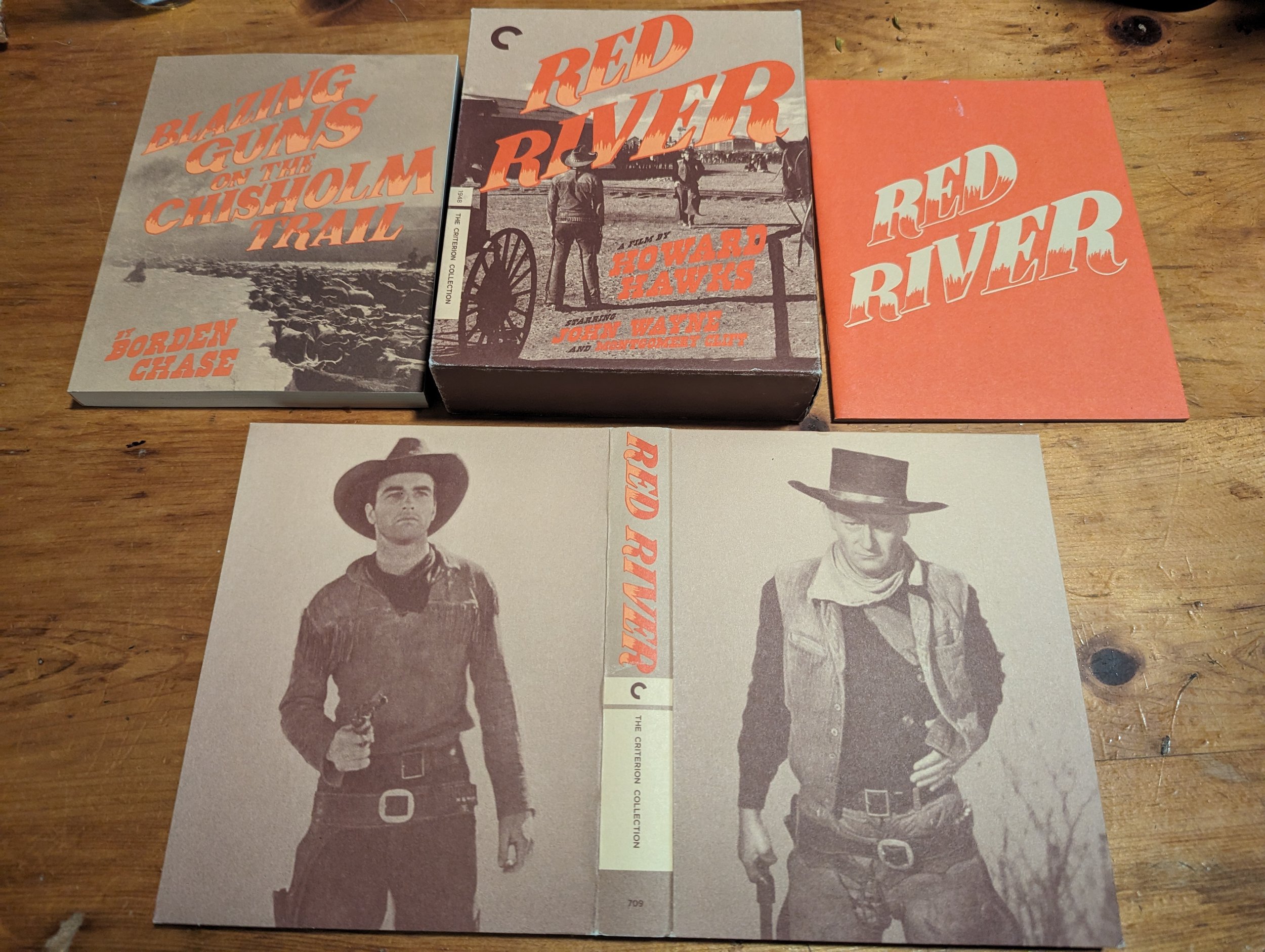Key features of boutique film releases
Part of the “Filmed Ideas” series
What’s the idea behind collecting more expensive, “deluxe” releases of movies when streaming or less-expensive options are available?
Like any niche hobby, some magical thinking may be required to convince yourself it’s “worth it”, but let’s look at key elements that distinguish boutique film releases from the standard fare.
Key benefits of boutique film releases include:
· High-quality sound and vision
· In-depth special features
· Booklets or essays
· Numbered cases
· Deluxe packaging
The various elements included in Criterion Collection’s deluxe release of Red River, including a box container, a digipak media holder, a booklet, and a printing of the book the movie was based on.
High-quality sound and vision
Boutique film labels reliably release films sourced from the highest quality materials found and remastered using the latest technology. From the original Criterion releases on LaserDisc to the present day 4K Blu-ray releases of films that fans never thought would get the attention, like Vinegar Syndrome’s Tammy and the T-Rex, boutique film labels usually offer the best audio and visual representation they can.
Importantly, boutique labels tend to honour the wishes of the filmmaker's vision, even if that means keeping in “flaws” that could be removed by modern technology.
In other cases, honouring the filmmaker’s intentions means making changes to meet the directors’ current inclination, like with the controversial World of Wong Kar Wai box set released by Criterion Collection.
In either case, the boutique label is serving the filmmaker and the vision behind the art, which may not match the priorities of larger studios.
In-depth special features
Boutique film releases often come with a plethora of special features compared to their bare-bones studio counterparts.
Studio releases often include, at best:
The theatrical trailer
Promotional material created by the studio to fulfill an obligation for the home video release
Meanwhile, boutique film labels tend to include everything from:
Audio commentaries
Original documentaries
Archival materials
Deleted scenes
Promotional interviews from the film’s original press releases
Even entire second movies can be featured as bonus material!
Fun fact: Criterion Collection’s LaserDisc release of the 1933 King Kong featured the first audio commentary.
Booklets or essays
Boutique film releases often include some reading material for the avid fan. They offer the opportunity to collect essays from critics and historians, interviews with the filmmakers or actors, or even printed versions of the source material that provides context for the film.
For example:
Every Criterion Collection release comes with a booklet containing one or two essays
Arrow Video limited releases often come with 80- to 120-page books.
Indicator Powerhouse limited edition release and box sets come with 120-page books.
The exception tends to be Vinegar Syndrome, although their partner labels and sub-labels, of which there are many, often do feature written material with the first edition run.
Some Criterion Collection releases even come with the book that served as the source material, which can be beneficial for fans, especially if the book itself has become rare or even gone out of print. Versions with the books can go out of print and become collector’s items themselves.
Numbered cases
This one may be less exciting and more esoteric compared to the other elements featured here. Cynically, it might also be one of the elements that drive an unfortunate element of consumerism and collector FOMO exploitation, but a key feature of a boutique film is numbered releases.
Numbered releases create the feeling of a series from what is actually a collection of movies whose sequence is dictated by many factors, mostly business-related.
Deluxe or limited edition packaging
Finally, boutique film releases tend to justify their higher price tags by making the packaging itself an important part of the product. Whether it’s the clear, thicker cases of Blu-ray packs, digipaks, or box sets featuring original artwork or reproductions of the original movie posters, the packaging of a boutique film release can often be a piece of art in and of itself.
Some companies use limited edition packaging to entice collectors, such as making slipcovers available only with the first run. Arrow Video often puts out limited edition packages featuring posters, books, and film cards, all of which are dropped for the more bare-bones standard edition release.
Criterion Collection tends to make all of their releases the standard format, with rare exceptions like the puke bag included with the first edition of John Waters’ Pink Flamingos.
In summary, some of the distinguishing features of boutique Blu-ray releases include:
High-quality sound and vision
In-depth special features
Booklets or essays
Numbered cases
Deluxe packaging
But the most important thing boutique film releases have in common is a love of film and a celebration of ideas with each release. Even as the fate of physical media seemingly hangs in the air, more boutique labels are opening up all the time and more movies are released every week.
Now we just need to find a way to increase time, space, and our collective wallets to keep up with the onslaught of new releases.
Challenge happily accepted!
Are you interested in learning more about boutique film labels? Read our article about major boutique film distributors.
Written by Matthew Long
Edited by Anthony Nijissen (Owner of APT Editing)

